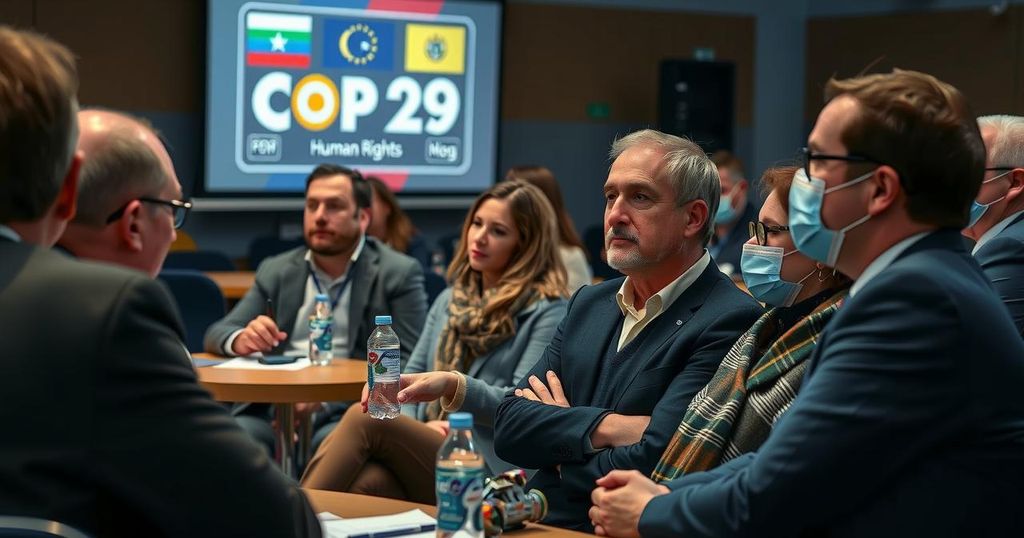Human Rights Concerns Mar COP29 as Azerbaijan Cracks Down on Dissent
Human rights groups express concerns that Azerbaijan’s government is using COP29 as a platform to suppress dissent and repress civil society. Allegations of increased arrests of activists and political prisoners have surfaced since the country’s designation as host. Critics argue that the ongoing suppression compromises the integrity of climate action discussions, calling for reforms in the host selection process to prioritize human rights.
The COP29 climate summit, currently hosted by Azerbaijan, has drawn substantial criticism from human rights organizations, which accuse the Azerbaijani government of suppressing dissent among environmental activists and political opponents. Activists report increased arrests since Azerbaijan’s selection as host in November, coinciding with a reported rise in political prisoners, exceeding 300 for the first time since the early 2000s. Despite the Azerbaijani government’s denials, advocates like Natalia Nozadze from Amnesty International and Emin Huseynov, an Azerbaijani journalist, emphasize that such repression raises alarms about the integrity of the climate discussions that are meant to be inclusive and constructive. Participants have pointed out that human rights conditions are deteriorating in Azerbaijan, undermining the COP29 goal of fostering collaboration towards climate action. Added scrutiny is warranted regarding the process by which host nations are chosen, particularly those with histories of human rights violations. The recent trend of countries with oppressive regimes hosting significant global summits questions the commitment to civil society and meaningful discourse on climate action. Calls for reforms have emerged, urging the United Nations to incorporate stronger human rights protections in host agreements. In summation, the ongoing crackdown on dissent in Azerbaijan serves as a poignant reminder of the intertwined nature of human rights and environmental governance, essential for a robust response to the climate crisis.
Human rights issues have increasingly pertinent implications for the global climate agenda, especially during international conferences like COP29. Azerbaijan’s hosting of the summit has sparked concern due to alleged repression of civil society, which is critical for fostering open dialogue and accountability in climate actions. Past hosts, such as the UAE and Egypt, similarly faced accusations of tightening grips on human rights, calling into question the appropriateness of these nations serving as platforms for discussions that necessitate inclusivity and transparency.
The Azerbaijani government’s tactics in suppressing activism during COP29 highlight a troubling trend undermining human rights and climate advocacy. As nations continue to grapple with climate challenges, the role of civil society must be protected to ensure authentic progress and not merely the appearance of commitment to environmental issues. This situation underscores the necessity for reform in the selection and vetting of host countries for crucial global forums.
Original Source: www.bbc.com




Post Comment